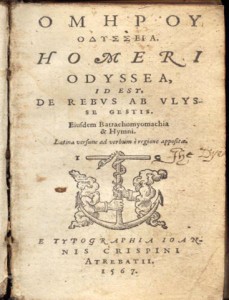Gemelli diversi: sulla “piccola differenza” tra il sofista e il filosofo
(Different Twins: On the “Small Difference” Between the Sophist and the Philosopher)
DOI:
https://doi.org/10.13135/2038-6788/8763Keywords:
Gianni Carchia, Nobody, Homer, Plato, Sophist, UlixesAbstract
A little mystery is contained in the prologue to the Sophist. It is not completely clear why Plato mentions Homer. The Homeric quotations that are employed appear rather poorly chosen given that, while attempting to grasp the essence of the philosopher, to which they refer, they seem to bring it to a disquieting proximity with the essence of the sophist. More specifically, in the Republic Plato sharply criticizes Homer: “Then let no poet ... say that ‘The gods, in the likeness of strangers from foreign lands,/ Adopt every sort of shape and visit our cities’” (Rep. 381d1-4). The same quotation, which comes from Odissey 17, 485-486, is used in the prologue to the Sophist to define philosophers—not faked philosophers, but rather authentic ones. What has happened meanwhile? Has Plato changed his mind? Or is it the case of a different use of the same quotation? And, in this hypothesis, why could the very same quotation apply equally well to the sophist (or the poet) as well as to the philosopher?


